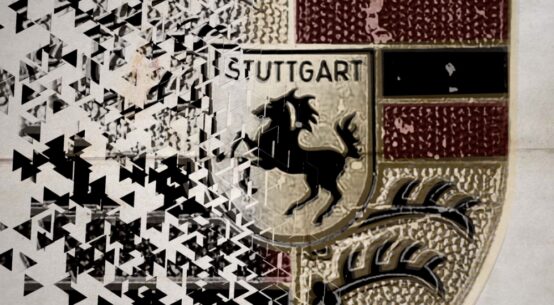Human Rights Law | World | Society
Introduction: A Landmark Moment for Indigenous Cultural Protection
In recent years, there has been a growing global movement to recognize, respect, and protect Indigenous cultural heritage—not only in the form of ceremonial and sacred artifacts held in museums, but also in the contemporary artistic works created by Indigenous peoples today. This movement gained notable momentum in British Columbia following a decisive legal victory by a Vancouver-based Indigenous art wholesaler, whose copyright infringement lawsuit against a Harrison souvenir shop has drawn national attention.
The ruling arrives at a time when countries, museums, and institutions worldwide—including the Vatican, France, and the United Kingdom—are beginning to return Indigenous cultural belongings taken over centuries of colonization. Together, these developments signal a shift toward accountability, cultural sovereignty, and legal recognition for Indigenous creators.
Vancouver Indigenous Art Wholesaler Wins Copyright Case
Coastal Spirit Creations, a distributor representing numerous Indigenous artists from the Pacific Northwest, confirmed that the B.C. Supreme Court ruled in its favour after a months-long copyright infringement case against a Harrison-based souvenir retailer.
The lawsuit began when Coastal Spirit Creations discovered a range of merchandise—such as T-shirts, mugs, carvings, and novelty items—bearing copyrighted Indigenous designs without any licensing agreement. These designs included traditional formline patterns, clan crests, and culturally significant imagery tied to hereditary stories and ancestral rights.
When the wholesaler contacted the Harrison business for proof of authorization, the retailer claimed the items came from a third-party supplier who had assured them the artwork was public domain. However, the retailer could not provide documentation, prompting Coastal Spirit Creations to pursue legal action.
The court ultimately ruled that the business was responsible for verifying the legitimacy of the artwork it sold, stating that ignorance does not absolve retailers of liability. The retailer was ordered to cease selling the infringing items, surrender all unauthorized stock, and pay damages—including legal fees—to Coastal Spirit Creations and the artists involved.
Why the Ruling Matters: The Cultural and Legal Weight of Indigenous Art
The court decision emphasized not only the commercial value of the artwork but its deep cultural significance. Indigenous art often carries ancestral knowledge, clan stories, ceremonial meaning, and familial identity. Unauthorized reproductions—especially in tourist markets—perpetuate cultural exploitation and divert income from Indigenous artists.
“This ruling is a victory for our artists and our cultures,” Coastal Spirit Creations said in its public statement. “Indigenous designs are not mere decorations—they are expressions of our histories, rights, and identities.”
Cultural experts say the decision reinforces the growing legal recognition that Indigenous designs and symbols are protected works of intellectual property, and not a public resource for commercial use.
Global Efforts: The Vatican and Other Nations Begin Returning Indigenous Artifacts
The lawsuit and ruling come at a time when repatriation—the return of cultural artifacts to Indigenous communities—is becoming an increasingly prominent issue worldwide.
The Vatican’s Recent Repatriation Efforts
In 2023, the Vatican returned several sacred artifacts to First Nations, Inuit, and Métis delegations, marking one of the most significant returns in its history. These items, held for decades in church collections, were originally acquired during colonial missionary activities. The Vatican stated that the return was part of an effort to repair relations with Indigenous peoples and acknowledge the harm caused by cultural dispossession.
Other Nations Joining the Movement
Across Europe and North America, institutions are reevaluating their collections and addressing historic injustices:
- France has repatriated Māori and Kanak remains and is reviewing artifacts from former colonies.
- The United Kingdom has returned sacred objects to Indigenous groups in Australia, Aotearoa (New Zealand), and North America.
- Germany has taken steps to return items to Namibia and to investigate collections originating from Canada.
- U.S. museums, following updates to the Native American Graves Protection and Repatriation Act (NAGPRA), have been required to accelerate the return of remains and sacred objects to tribal nations.
These global repatriation efforts highlight a shift in how institutions view Indigenous heritage—not as trophies of colonial history, but as living belongings with ongoing cultural and spiritual significance.
A Broader Push Against Cultural Exploitation
The legal victory in B.C. reflects a broader push to challenge the unauthorized use of Indigenous art in commercial markets. Knockoff products—especially in souvenir shops—have long been a problem for artists who struggle to protect their designs from widespread copying and illegal reproduction.
Coastal Spirit Creations says it hopes the court ruling will serve as a landmark precedent, encouraging other businesses to source ethically and support authentic Indigenous creators. The company also emphasized that buying licensed products ensures that revenue flows back into Indigenous communities, supporting cultural knowledge holders and emerging artists.
Conclusion: A Step Toward Justice and Cultural Sovereignty
The outcome of the lawsuit represents more than a legal victory—it reflects a growing recognition of Indigenous rights, cultural ownership, and the need for systemic change. As institutions like the Vatican and national governments continue to return sacred artifacts, and as courts reinforce the value of contemporary Indigenous art, a new framework for respect and accountability is taking shape.
The ruling in favour of Coastal Spirit Creations strengthens the message that Indigenous culture—whether ancient or modern—is not a commodity to be taken or reproduced without consent. Instead, it is a living, protected expression of identity, history, and resilience.
With global efforts aligning toward cultural justice, the decision stands as an important reminder: Indigenous art belongs to Indigenous peoples, and protecting it is essential to honoring their sovereignty, stories, and futures.






